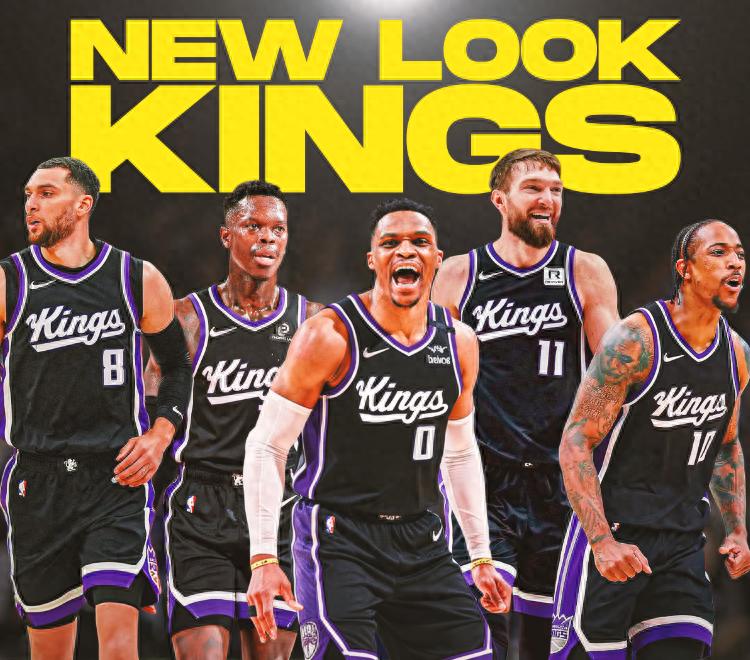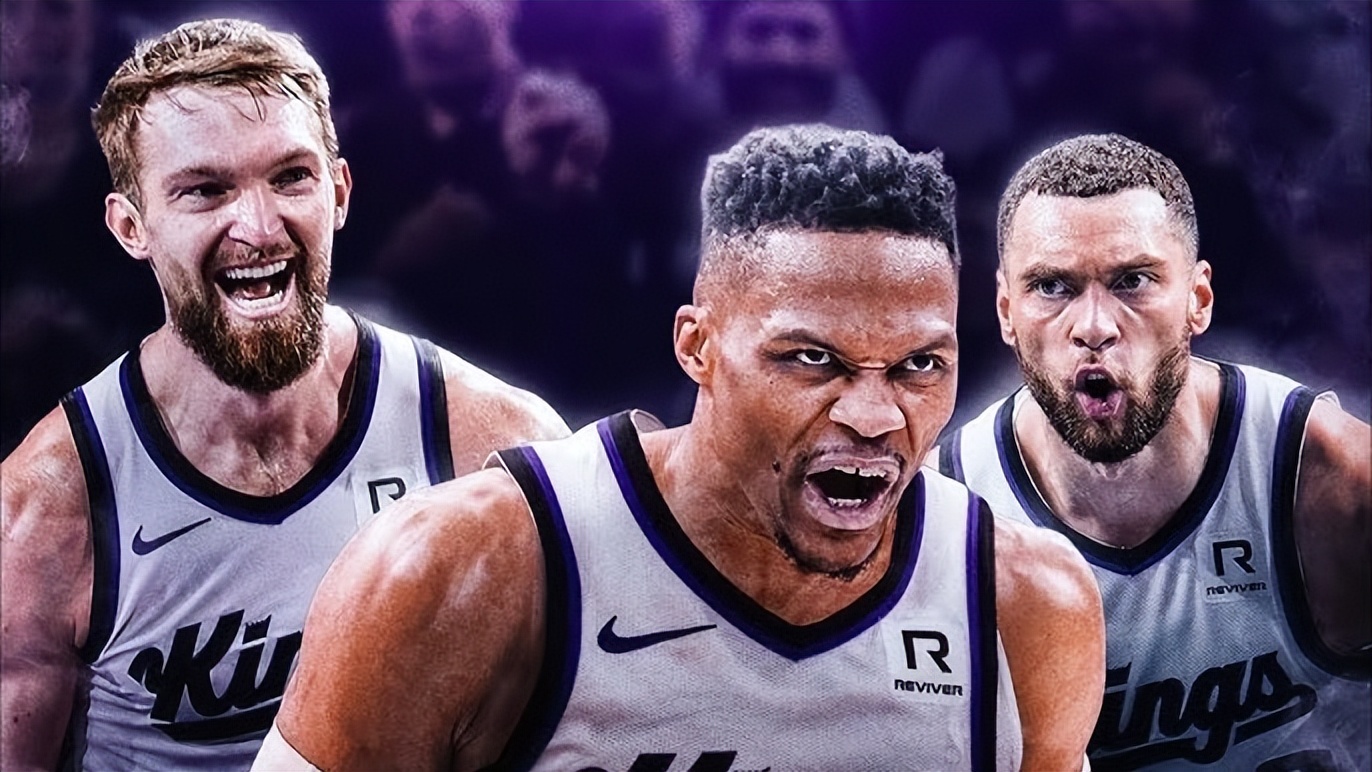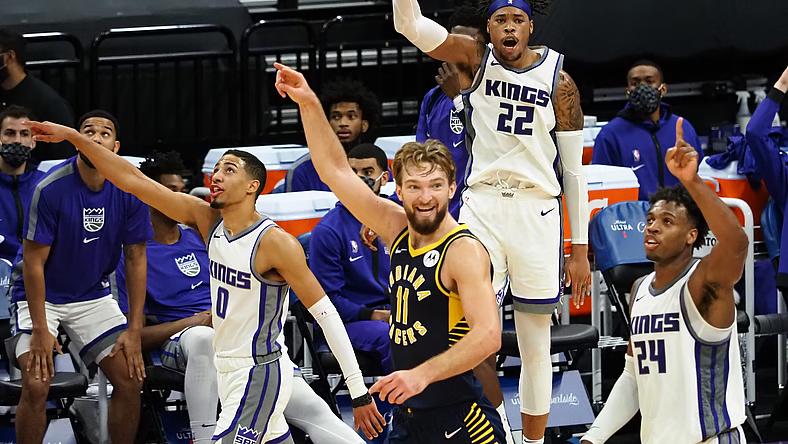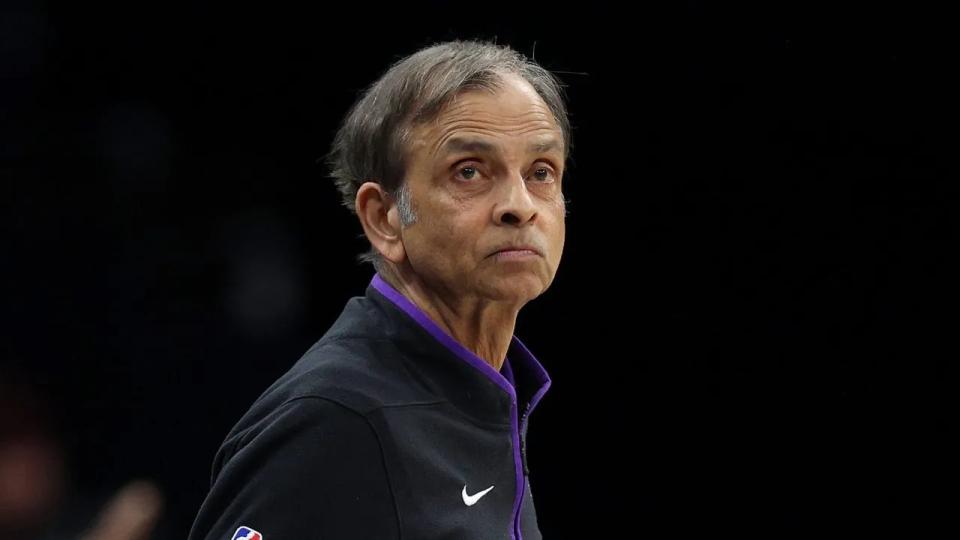Kings sign Westbrook amid skepticism! US media says team is heading in the wrong direction: rebuilding is the only way out
On October 16th Beijing time, the Kings reached a one-year, $3.6 million contract with Westbrook. While many wished him well, some doubted the decision. Yet, the blame lies with the Kings rather than Westbrook. The organization has been criticized for heading down a misguided path. CBS analyst Cameron Salerno offered the following commentary—

In 2023, the Kings lost to the Warriors in a tough seven-game playoff series, but at that time, they seemed to have finally escaped the mediocrity that had defined most of the past decade. The team broke the longest playoff drought in North American sports history, recorded the highest offensive efficiency in the NBA at that time, and under coach Mike Brown with core players De'Aaron Fox and Domantas Sabonis, they had a clear developmental direction for the first time.
However, since then, most of the Kings' moves—especially the recent signing of former MVP Russell Westbrook—indicate they are heading the wrong way: the roster lacks balance and the overall composition makes little sense.
Chaotic roster: like a “mixed buffet”
To describe the Kings' current roster—a backcourt-heavy lineup with very few forwards—it's like a nearby buffet restaurant that offers many cuisines but, despite seeming diverse, lacks any logical pairing.
This is exactly the Kings' situation: individually, players might fit well on other teams, but combined, they create a “stomach ache,” and their performance on the court confirms this. Westbrook’s career is winding down; undeniably, since 2019 he has moved through five teams, experiencing both highlights and controversies. Though he remains a strong leader who can energize the bench, does his addition really make sense for a team already overloaded with guards?

At the start of this offseason, the Kings lacked a pure point guard, so Westbrook’s arrival seemed to fill that gap. Previously, the Kings acquired Dennis Schröder from the Detroit Pistons via a sign-and-trade, signing him to a three-year deal—though this trade stalled early in free agency amid reports that the Kings were interested in restricted free agent Jonathan Kuminga.
But now, with Westbrook, Schröder, Malik Monk, DeMar DeRozan, and core player Zach LaVine—acquired at last season’s trade deadline for Fox—the roster can at best compete for a play-in spot, rather than addressing roster fit issues, engaging in difficult internal communication, or developing the team’s young talent.
Past choices and current dilemmas
Where should the Kings go? Let's rewind to winter 2022—before that season’s trade deadline—the team’s point guard position was also crowded with Haliburton, Davion Mitchell, and Fox. The fit between Haliburton and Fox was always problematic, which partly motivated management to trade Haliburton to the Indiana Pacers for Domantas Sabonis: the Kings believed Sabonis would boost their offense and serve as the tactical centerpiece, which he indeed did in the 2022-23 season.

However, since the 2023 playoff defeat, under then-GM Monte McNair, the Kings failed to make major reinforcements. In recent years, the team was linked to several potential trade targets such as Anunoby, Siakam, Markkanen, and Caruso—all players who could fill the obvious wing gaps and complement Keegan Murray. Unfortunately, Murray recently underwent thumb surgery and will miss at least 4 to 6 weeks.
This is why the Rockets’ trade for Kevin Durant is so admirable: after seizing the moment to make a stunning comeback and secure the second seed in the West, they upgraded their roster significantly to build a foundation for a championship run next season.
Meanwhile, with Murray sidelined, the Kings lack a suitable starting-level replacement. Sure, you could slot DeRozan or summer league standout rookie Nick Clifford at the four spot, but both are undersized and likely to struggle against most NBA power forwards.
This is also why rumors surfaced this offseason that the Kings are eager to pair Murray with Kuminga in the frontcourt—if successful, the team would have two complementary forwards as building blocks. Kuminga can’t be traded by the Warriors until January 16, 2026; if he joins the Kings, he would be among the youngest players on the roster.
Rebuilding: the only but difficult path
The direction the Kings should take is actually straightforward, but since owner Vivek Ranadivé bought the team in 2013, he has consistently resisted taking this step: rebuilding.

The 2026 NBA draft class boasts top-tier talents, and the Kings hold all future first-round picks except for a swap right with the Spurs in 2031. Three prospects stand out: BYU’s AJ Dybantsa, Kansas’ Dalen Peterson, and Duke’s Cameron Boucher. Additionally, Tennessee’s Nate Ament and Louisville’s Mikal Brown also have potential to become players worth “tanking for.”
Any of these players could become the true cornerstone for the Kings, providing a clear development path from the 2026-27 season onward. Yet, signing Westbrook shows the Kings are not yet ready to take this necessary step toward earning a future playoff return.
Currently, the Kings should be giving ample playing time to first-round pick Devin Carter, soon-to-be free agent Keon Ellis, Clifford, Murray, and other young players, but they are likely to be sidelined in favor of veterans—all in pursuit of merely a play-in tournament spot.
Ultimately, signing Westbrook at minimum salary isn’t the core issue. The Kings’ current predicament largely stems from moves made by Scott Perry’s predecessor. Although Perry has experience rebuilding rosters, he now faces challenges again: inheriting a high-salary team without a clear identity.
With just one week until the Kings’ season opener against the Phoenix Suns, their roster remains in disarray with no clear solution in sight. If Ranadivé’s goal is merely to fill seats by signing big names, then bringing in Westbrook certainly achieves that and aligns with his short-sighted vision.


Wonderfulshortvideo
User FieldFrenzy has posted a video.


Quentin Richardson wasn’t having it 😂


A special moment pregame, as Giannis Antetokounmpo is honored at center court for his tenth straight All-Star selection by Bobby Portis and his brother Thanasis 🤩‼️


Ausar Thompson denying anything and everything 😮💨


Since Trey entered the league, Trey is one Since Trey Murphy III entered the league, only 8 guys have scored 10+ threes in a game multiple times…He's now done it 3 times 🤯


Jalen and Cade talk about what makes their connection special 🤝


One week out from the @RUFFLES Celeb Game at NBA All-Star, 2025 MVP @Rome Flynn is locked in on going b2b.. not even @Lethal Shooter can distract him 😂








 Links
Links
 Contact
Contact
 App
App


